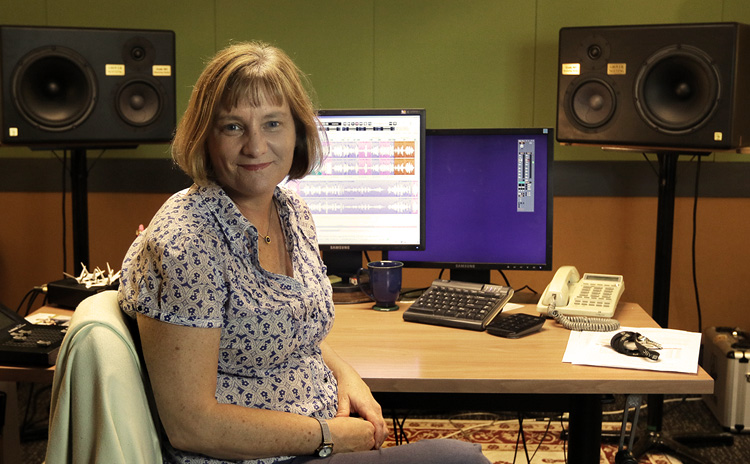Virginia Read - In her own words

For the last seventeen years, I’ve been working for the record label ABC Classics. We’re a small but very successful outfit focusing on the music performed or written by Australian musicians. We have a strong international following and I’ve been privileged to work with many of Australia’s great classical musicians. Over the years many of my albums have been nominated for Aria Awards in the Best Classical genre with many wins. I also won the Engineer of the Year Award in 2013.
I learnt my trade firstly in Canada at McGill University where I completed their Tonmeister program and then later in New York at the studios of Classic Sound where I worked with Grammy winning engineers and producers David Frost, Tim Martyn and Tom Lazarus.
My recording and post production schedule is always very hectic and I need a studio that is functional and flexible. I confess I don’t have loads of gear and I fear I’m famous for being the last to upgrade my editing software, but I take pride in the fact that what I do have is of high quality and unfailingly reliable. Every day must be productive and all the components of my studio must be doing a good job.
Monitoring is absolutely key to the making of a great album. When recording classical music, the smallest adjustment to the position of a microphone can make a significant difference to the sound of an instrument or the balance of an ensemble. I need to receive reliable information and feedback from the monitors as to what I’m doing with the microphones and the mix. The musicians must be able to listen back to their performance and be comforted that they are being well recorded and inspired to go back into the studio to record an even better take. With great monitors the delicate and emotional process of recording music is enhanced, and the hard slog of post-production is made more enjoyable and successful.
For many years, I had monitors I was very happy with. I knew that they weren’t particularly flattering to the sound, and for the recording of large groups I wished they had a bit more power. I was always on the lookout for something better, but could never find something that had the clarity and immediacy I wanted. I was very reluctant to change my monitoring through fear it would change the sound of my recordings for the worse and slow me down.
I was finally convinced with the Grover Notting Code 101 monitors in tandem with the Grover Notting Mastering Series Power Plant. They sound beautiful without giving me a false impression of what I’ve recorded. I feel immersed in the sound and have confidence that I’m hearing an accurate reproduction of what I’m recording and mixing. I feel as though I’m getting mixes done more quickly and they translate very well to other, more testing listening environments. My musicians appear happy and relaxed and focus more on their performance rather than asking me to fix their balance. This is a very good sign and really does help to produce better albums. These monitors are a great size and configuration for my studio too. Meter bridges and computer screens seem often to obscure drivers of many monitor designs these days.
Being a very nervous upgrader of equipment I can say that I very quickly adjusted to the Code 101 monitors. It all went very smoothly and I look forward to getting into my studio day after day!
